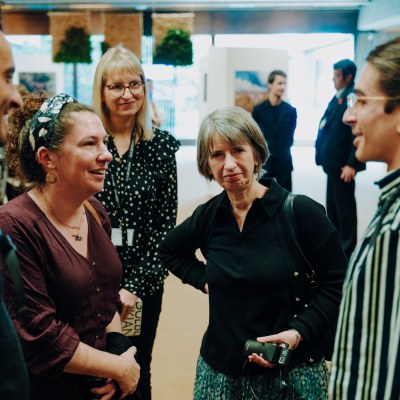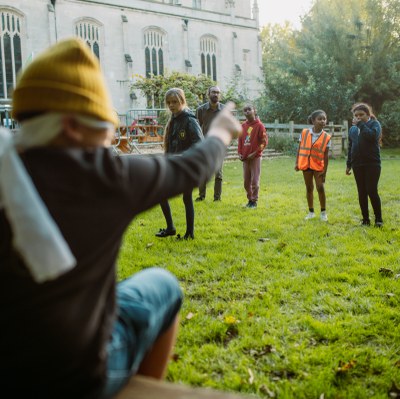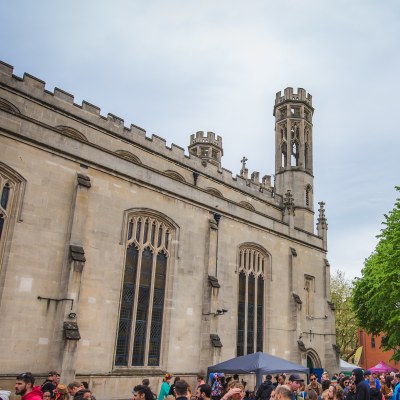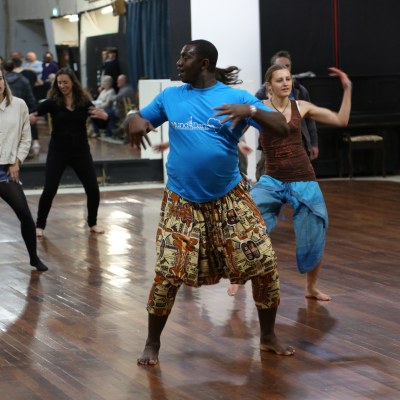Opinion: migration crimes
2008 Dice Project, led by the wonderful community activist, Paulette North
“When people feel proud of where they live, trust grows. Community empowerment can be an antidote to riots, populism, and the void between people and politics.” Power to Change
It’s been hard to miss rising tensions across the UK, including in Epping near my home town of Harlow. Speaking to Sky News, some of those protesting said they feel afraid and want fairness. This is “a fight for survival,” one interviewee laments, though refugees and asylum seekers make up less than 2% of the UK population.
A sleight of hand diverts attention from the real causes of health, housing and social mobility inequity, serving the interests of affluent, monocultural influencers who benefit from sustaining division. Musk live streams in with his hot take. Rylan’s already chimed in with his two-pence. Unpicking this will not be easy.
We need only look to the US to see how there are forces that manipulate the strength of feeling of those already feeling overlooked for their own gain. Shame does little to counter and instead fuels a belief that we – the politicians, decision-makers, experts, liberal elite and ruling classes – do not care.
It’s easy to dismiss people as uneducated or ignorant as our gaze is drawn toward communities where asylum seekers are placed in hotels or dispersed without adequate care or support. Challenges that echo Gordon Brown’s ‘Bigotgate’ drive those disenfranchised for generations further toward those who affirm their views and stoke their fears – even where there is little to no promise of improvement to their current circumstances.
“It looks quite pretty”, says my mum, about the St George’s flags that have popped up in and around my home town, missing how this symbol of belonging ‘others’. A shift reminiscent of a Buddhist symbol that once stood for good fortune and prosperity that has since become synonymous with oppression and hate. A reminder that our symbols, like our identities, are subjective, contextual and in constant flux; a negotiation between us and the rest of the world.
As the Sky News interviewee tears up imagining their WWII fighting relative turning in their grave at the thought of the erosion of this once great nation, I read a WhatsApp from my sister; her friends in Epping describing anti-migration protesters as “awful,” and a summer of church services being cancelled because residents feel too fearful of those purportedly defending British values.
We try to reason that, “migrants do the jobs we won’t”, meant as a defence and reinforcing a hierarchy where migrants are only welcome if they serve us. A statement offered by those distant from those working class communities who traditionally wiped the bums of this once great nation.
We point to our individual and collective role in the climate crisis as a catalyst for global migration, as local volunteers are left to clear the rubbish scattered around hotels and fields after protesters from both sides have long gone home.
We argue our country has caused wars and displacement as if this will resonate with those who have given up on voting a long time ago because, as my dad puts it, “they’re all as bad as each other”.
From wars to wages to the shape of our neighbourhoods, “you have to join a protest to try to get the government to listen to you”, is a statement shared across a political spectrum increasing devoid of nuance. Voices speaking of “protecting women and children” as they terrify that same demographic who have no where else to go. Voices of those labelling anyone anxious about what change outside their control means for them as “far right”. Voices leading the charge on either side framing themselves as either safeguarding from invaders or resisting Nazi scum, emboldening others to join them.
If we expect people to care about our complicity in wars, climate change and other global crises driving migration we cannot keep debating in the abstract or from opposite sides of the picket line. We must neither underestimate the unfair burden on those most harmed by prejudice, nor the power we hand to bad actors when we dismiss the concerns of whose energies right now are misapplied.
To realise something better, we have to find unharmful ways to connect and amplify the voices that matter most – both those migrating to the UK to contribute to our economy or seek refuge and the communities they join. We must make space to sit down, talk openly and be honest if we want a solution that sticks. With the English Devolution and Community Empowerment Bill moving forward through Parliament - the first time the word ‘empowerment’ has ever appeared in the title of a bill - the hope is increasing rights of communities to shape their neighbourhoods may just be the antidote to this social fragmentation.
“Once called ‘cohesion,’ revisiting it could be exactly what we need!”, I thought, as I reminisced one of my first projects at Trinity, the ‘Dice Project’ with Bristol’s City Academy. It brought together older people and children from refugee and asylum communities during a time of growing local tensions. Watching the film of it back, I’m not gonna pretend it changed the world.
But without efforts like it, we can’t be surprised by the results we’re now seeing across UK communities of today who are being left to figure it out for themselves. “I was surprised at the pictures the children drew around the wall. It just opened my eyes again to not judging”, said one older participant from a project that no longer exists, that was funded by a fund that no longer exists and filmed for a community TV channel that no longer exists.
One interaction, one conversation, may not fix all our problems. But, over time, many interactions and continued conversations might just help to soften our edges. “Now we can respect to all people [sic]. No ‘younger people is good, older people is bad’. All people is nice. We must try and be friendly,” said one of the younger project members, who will by now be adulting in a society where we call for consent in our online spaces and bypass it when shaping the streets we live on.
This film about a long-forgotten project plays in a country in which our differences are gamified in a deliberate move by those who stand to profit politically from those with beef misdirected, countered by those leading the charge for Community Empowerment with punitive measures against migrants in a bid to nullify hostility, feeding the narrative that migration is the problem. In a world where we focus resources and efforts on the big issues from defence and health to the environment, while leaving the social fabric needed to deliver real and lasting solutions for our communities to chance. This is perhaps the greatest of all our migration crimes.
As I reach the end of that film of a cohesion project from almost 20 years ago, tying to find something to help us here in the now, one young voice shares a final thought; “‘I’ve learnt that not all Elders are boring”.
It’s not much. But it’s a start.
This is an opinion piece by Emma Harvey, CEO
Interested in finding out more about the English Devolution and Community Empowerment Bill? Click here to read this New Statesman article featuring Josh Westerling from Power to Change and Sacha Bedding from the We’re Right Here campaign.








